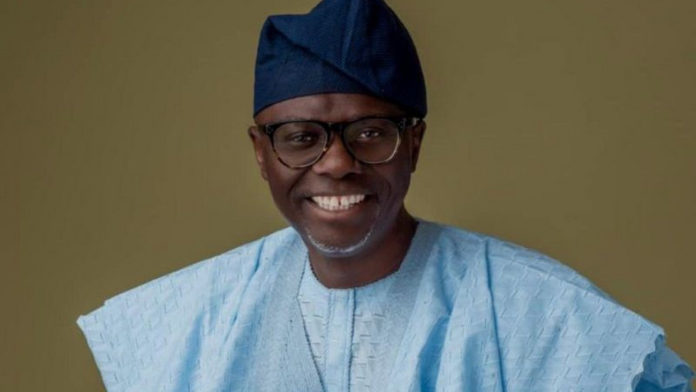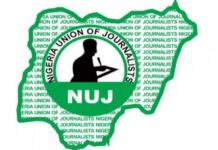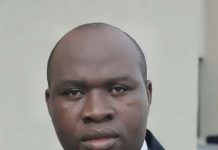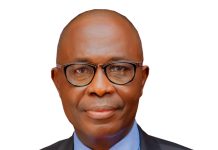
NIGERIA is 60- despite all that she has been through as a nation. For some, it is a time to hit the street in colorful dresses for a carnival to exhibit what many a critic have described as our proclivity for flamboyance. To others, it is a time to get on our knees, thank The Almighty for bringing us this far as a united nation and, thereafter, reflect on our tortuous journey to adulthood.
How have we fared? Have we disappointed our forefathers? Are we more purposeful as we were at Independence? Are our youths happy? Are the elders smiling? What is the state of our infrastructure? Are we proud of our democracy? Is the world leaving us behind? How long will our teething problems last? When will our security challenges abate? When are we going to fully recover from the terrible effects of COVID-19 that has dealt our world a lethal blow? These are some of the many questions on my mind as I reflected on Nigeria’s Diamond Anniversary.
It all began here at the old Race Course, Tafawa Balewa Square on that rainy October 1, 1960 morning. Lagos served as the cradle of our sovereignty and the capital of Nigeria as a protectorate, then a republic (from 1914 to 1991). The unique topography of Lagos – its islands, sandbars and lagoons; our heterogeneous nature as a town that is the melting pot of cultures – has positioned our state for its leadership role in the economic, political, social and cultural development of our great country. What originated as a fishing village on an island has metamorphosed into a thriving seaport and megacity.
Lagos is no longer the nation’s political capital, but it is undoubtedly its business and financial engine-room. Indeed, it is West Africa’s commercial nerve centre. Lagos contributes 30% of Nigeria’s GDP and holds no less than 80% of the country’s industrial capacity. This is quite remarkable, considering the fact that Lagos is home to 10% of Nigeria’s 200 million+ population on a landmass representing less than 1% of our great Nation.
Realizing early that long-term investment in critical infrastructure is an intrinsic part of economic development, Lagos pioneered many key projects, such as the early rail transit system, which yielded a corresponding growth in urbanization along the line of the railway on which towns, such as Ebute-Metta, Yaba, Surulere, Ijora, Ikeja and Agege, sprouted. We witnessed the population boom of the 1970s as a result of the growth in the oil industry. This signaled a paradigm shift in our history – a period which opened up our coastal city with the influx of thousands of people seeking greener pastures and jobs in the oil industry as well as the construction of a social housing programme. It was the crystallization of an idea that would go on to define the very essence of life in the sprawling metropolis – the hot chase for “The Lagos Dream”.
As far back as the 80s, with rising unemployment statistics, we had understood the need to maximize the opportunities inherent in a city-state such as ours by diversifying the abundant economic potential and harnessing human capital for better growth. The road to actualizing this was a dedicated will to develop alternate industries in agriculture, technology, hospitality and entertainment, among others, as well as in the informal sector. Our founding vision of a megacity in which there are opportunities for all, regardless of race and colour, remains strong.
Today, a population of over 21 million residents is evidence of the unprecedented rate at which Africa’s largest city is growing. Our urban footprints in the last 60 years provide a window into the urbanization of Lagos, illustrating a story of the social, economic, environmental and political factors that have reciprocally shaped our city. Research suggests that these changes may be nothing compared to what we will witness in the next 60 years. Maintaining the current growth and migration rates, Lagos could become the world’s largest metropolis, home to 85 or 100 million people.
How are we poised to further steer Nigeria through the next decades of her independence? We must look to the foundational pillars which define good governance in any democracy. Our administration condensed this to six cardinal indices of development particular to Lagos State, yet adaptable to any city of the world, namely: Traffic Management and Transportation; Health and Environment; Education and Technology; Making Lagos a 21st Century Economy; Entertainment and Tourism; Security and Governance. These are encapsulated in the acronym T.H.E.M.E.S. Agenda for a Greater Lagos.
What do you see when you close your eyes and imagine the Nigeria of the future, say 5, 10, 20, 50, 60 or even 100 years from now? This is the question I ask myself daily in the discharge of my duties and in implementing policies which are designed to be adapted for a world beyond our present circumstances and realities. The litmus test for any course of action is to objectively answer whether a policy would be of benefit to our children and generations yet unborn.
Afro-futurism is a concept that is largely shaping developments around the continent, Nigeria inclusive. In our quest for a semblance of what a utopian African society would look like (our very own Wakanda if you like), Lagos is making monumental strides in the transport and housing sectors. These are the two behemoths which often pose great challenges to a city with a sprawling population such as ours. Some of the priorities of my administration are solutions which accommodate people and move them efficiently from one place to another, significantly reducing lost productivity time associated with current commute challenges.
The Lagos Light Rail system is one of such projects which will redefine our commuting experience and overhaul the entire transport system. Gleaning lessons from the railway operations of old and infusing ultra-modern technology, this will open up Lagos like never before, easing the movement of people and goods within the metropolis. We are in the final phase of delivering the 27km Blue Line, which connects Marina in the heart of the city with Okokomaiko on the outskirts. It is set for test-run in December 2021. This will pave the way for the Red Line from Agbado-Marina and six other planned routes, which are part of our transport masterplan. The future of transportation is the ability to connect from opposite sides of the mainland to Lagos Island in minutes. This will not only positively impact the ease of doing business within Lagos, but promote enhanced interstate commerce with better opportunities for all.
We are making the most of our unique topography by investing aggressively in an operational water transport system. Commuters are being ferried across Lagos waterways along various routes, comprising Ikorodu, Ebute-Ero, Apapa, CMS, Ikoyi and Ajah, with LAGFERRY services. We launched 14 boats earlier this year and are set to double the fleet by the end of first quarter of 2021. We extended the campaign to safety of passengers by removing water hyacinth from the water channels and creating navigation routes through the use of directional balls. These are all geared towards easing the pressure on our roads.
We recently flagged off the 13.68km long BRT corridor from Oshodi-Abule Egba, which has drastically reduced travel time from an average two hours during peak periods to approximately 30 minutes. This is in addition to an upgraded e-ticketing system, which will be integrated into the BRT, LAGFERRY and Light Rail services. Acknowledging the need for partnership in meeting the demand for commuting services, we have engaged ride-hailing companies to develop regulatory guidelines which meet this demand and prioritize safety of passengers. These are all aimed at improving the public commuting experience and increasing productivity of an average Lagosian.
Occupying just 0.38% of Nigeria’s land mass and one-third of that figure under water, it would seem the odds are stacked against us in housing. With our sight set firmly on the future, we are developing Lagos Homes housing projects in many parts of our dear state. Some have been delivered in Ikorodu, Igando, Lekki and Badagry. Besides, we are implementing policies which make the creation of housing solutions easier, but we are not oblivious of the limitations of the government to solely reverse the housing deficit. We are continuously seeking partnership with the private sector and real estate developers to jointly address this problem.
One such venture is the Eko Atlantic City, a mega real estate project which challenges our perceptions of what is possible in the realm of city architecture. Popularly referred to as the “Great Wall of Lagos”, this entirely new coastal city being developed on land reclaimed from the Atlantic Ocean will become home to a quarter of a million people and provide 150,000 with jobs. This template will set the stage for us to join the league of smart cities; this would have been inconceivable decades ago.
Our commitment to providing sustainable energy and affordable power is challenging the traditional stereotypes. A few months ago, the Lagos State Government launched an innovation challenge (Lagos Smart Meter Hackathon), which is leveraging the tech community to find crowdsourced solutions to our metering gap through locally developed prototypes for prepaid meters. Similar initiatives aimed at accelerating the pace of technological advancement are constantly incubated through dedicated programmes at the Eko Innovation Center.
In the same vein, we expanded the Olusosun landfill, one of Africa’s largest dumpsites, by 42 acres to accommodate increased activity and plans to harness energy from the natural gases which build up there. This is one example of the ways in which Lagos applies homegrown solutions to problems, in this case waste management.
To Lagosians, I cannot overstate the crucial roles we all have to play as individuals in the achievement of the Lagos of our dream. We rely on you, because you are our greatest resource –the demographic dividend which is only payable when our young, vibrant workforce exert their full capacities to driving economic growth.
When I close my eyes and think of Nigeria of the future, it is one that has largely been influenced by the advancements we make here in Lagos. And so, my imagination is filled with the endless possibilities of an intermodal transport system that optimizes the use of road, rail and water as well as intracity aerial modes of transport. I see the fantastic buildings that will dominate the city’s skyline as we continuously build up and also our coastline with the advent of floating cities.
But, most especially, I see you: the creative, passionate, resilient people, who will make these dreams come true with your output and advancement in commerce, industrialization, service delivery and commitment to excellence.
I see a Lagos that becomes a net exporter of talents with ambassadors whose names reverberate from all corners of the world. Our art and fashion gracing the runways of coveted shows and adorning the closets of icons; a pristine environment devoid of pollution and white sand beaches that will be the toast of the tourism industry; our Afro-fusion music and Nollywood works driving global conversations, dominating the screens of an enthralled audience from Sydney to California, Amsterdam and Mumbai. Ever present in my mind’s eye are upscaled levels of export production and much needed foreign exchange from the industrious merchants of the international markets at Ladipo or Balogun; and the sophisticated innovations that pop out of Yaba, our own Silicon Valley.
Encompassing these socio-economic advancements is the infectious warmth of our people and their boundless energy, their calmness in the organized buzz that characterizes our city and, perhaps most importantly, a cohesive security infrastructure that promotes peace.
I refuse to accept that this is all the fruit of my fertile imagination. No. I truly believe in our inherent power to advance the course of Lagos and, by extension, Nigeria’s path towards realistic dreams. Adapting the lingo that has come to be associated with another metropolitan city, I make bold to say that “You can make it here, and win everywhere”.
Sanwo-Olu is the Executive Governor of Lagos State.















